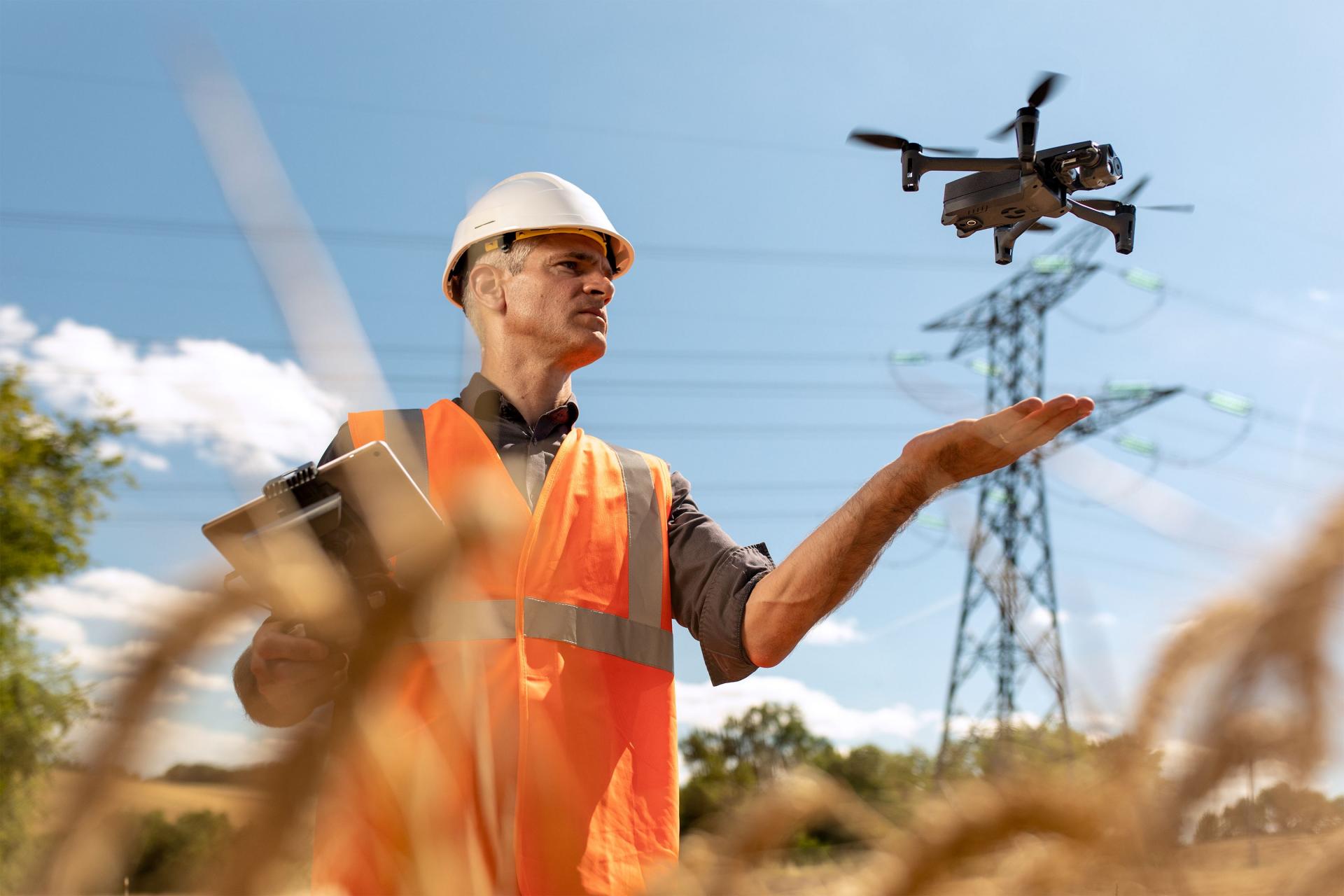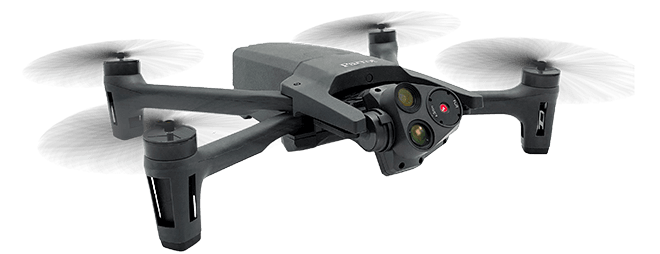
In recent years, the US Armed Forces and government have increasingly moved away from Chinese-made technology, including a ban on the use of Chinese-made drones by government departments. This presented a unique opportunity for other drone makers looking to target the US military market, one that France’s Parrot swiftly used to propose a new UAV for the US Army.
Developed from an ongoing US Army project to build drones for short-range reconnaissance (SRR), the ANAFI USA features a litany of functionality derived from the military use case. The 500g drone features 4k video, thermal imaging, a ruggedised airframe and, perhaps most importantly for the military, multiple levels of data security.

Discover B2B Marketing That Performs
Combine business intelligence and editorial excellence to reach engaged professionals across 36 leading media platforms.
Cybersecurity from the ground up
We spoke to Parrot chief of security Victor Vuillard about the drone’s security capabilities and the levels of protection built into the system, from a software level down to the physical manufacturing.
“The first one is that we want the user to keep control of their data,” Vuillard said. “No data is sent to Parrot by default. Of course, we have options for the user to share data, for example, to ease customer support, but by default, nothing is sent and the user keeps the data on their own device.
“The second point is we want to secure all the supply chain and manufacturing. It’s been a great concern because, on other subjects, we’ve seen even hardware backdoors and high-level attacks on different kinds of projects on high-technology. T secure production, we chose to manufacture our drone in the USA.”
The drone features several levels of data protection, including encryption of the storage media protecting the data in case the drone or SD card is lost, and a secure encrypted link between controller and drone. On top of this Parrot uses signed firmware, which can signal whether any malicious modification to the system has been made.

US Tariffs are shifting - will you react or anticipate?
Don’t let policy changes catch you off guard. Stay proactive with real-time data and expert analysis.
By GlobalDataVuillard explained the importance of this: “When a user uses a drone, one of the main concerns is what if the drone falls, or is captured, or is lost? Defence users don’t want their data to be gathered by anybody, being an adversary party or anyone else, to read this data. So what we added on ANAFI USA is full-disk encryption of videos and photos.
“The encrypted volume is created on the SD card. This encrypted volume uses AES-XTS algorithms with 512 bits, which is one of the best solutions to encrypt and protect all user data on the drone.”
 ANAFI USA. Image: Parrot.
ANAFI USA. Image: Parrot.
Pick up and fly
Parrot vice-president and chief sales and marketing officer Chris Roberts described the ANAFI USA as a ‘unique drone’ due to its combination of enterprise-class data security and ease of use, which he said was driven primarily by the adoption of consumer drones over the past few years.
“The ANAFI USA’s heritage comes from the first generation ANAFI that we launched exactly two years ago,” Roberts told us about its development. “We’ve had three or four different versions of the standard ANAFI and then, in April 2019, we launched ANAFI thermal which was a thermal version with the RGB for professional channels.”
The company describes the £6,500 drone as designed for the US military but stresses its use cases in other areas, saying its functionality gives it utility in the professional and enterprise markets. One key selling point of this is the drone’s onboard camera, which Parrot says allows operators to view objects up to 5km away.
Another feature spanning professional and military use cases is the ability to operate the drone without GPS indoors, meaning in an intelligence, surveillance and reconnaissance (ISR) role, the drone could be flown to and into a building. The drone also is shipped without the limitations of no-fly zones, allowing it to go where consumer drones cannot.
The drone is ‘mission-ready’, according to Roberts, and can go from case to flying within 55 seconds.
While anyone could pick up and fly the drone, according to Parrot vice-president for security and defence Laurent Rouchon, understanding how to use its professional capabilities would require a day of training. This, Rouchon said, will give operators all the tools they need to use the drone’s capabilities, be it a firefighter responding to a blaze, or a soldier surveying their immediate environment.





